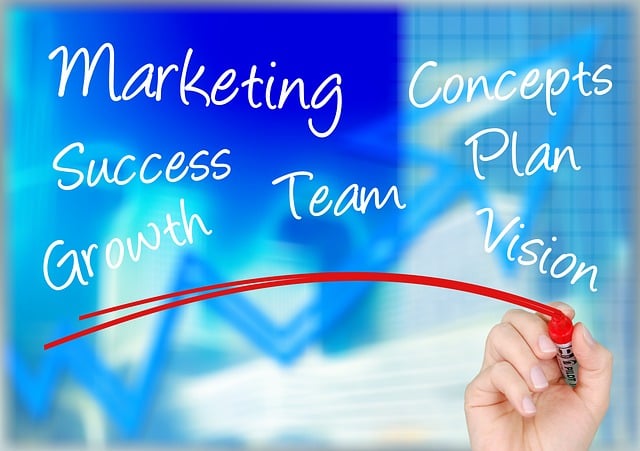AI kitchen automation for chefs parallels its talent acquisition counterpart, revolutionizing hiring practices by automating candidate screening, resume parsing, and skill assessments using machine learning algorithms. This technology empowers recruiters to focus on strategic aspects like relationship-building and deeper interviews, enhancing the recruitment experience. While AI streamlines tasks from initial screening to final selection, it also raises data privacy concerns and struggles with nuanced human skills, requiring a balanced approach. For culinary roles, NLP analysis, AI simulations, and virtual cooking challenges enable efficient filtering and assessment of candidates' practical skills, leading to faster decision-making and the selection of top talent for any kitchen environment.
“Revolutionize your business’s talent acquisition process with AI automation. This cutting-edge technology is transforming recruitment, from streamlining initial screening to identifying top culinary talent. In this article, we explore the ins and outs of AI in hiring, delving into its benefits—like enhanced efficiency and bias reduction—and challenges, such as ethical considerations. Discover practical strategies for implementing AI kitchen automation, tailored for chefs and restaurant businesses, to optimize your hiring processes and attract top culinary professionals.”
- Understanding AI Automation in Talent Acquisition
- Benefits and Challenges of AI in Business Recruitment
- Strategies for Implementing AI Kitchen Automation in Hiring Processes
Understanding AI Automation in Talent Acquisition

AI automation in talent acquisition, akin to a sophisticated AI kitchen automation system for chefs, transforms traditional hiring practices. It streamlines processes like candidate screening, resume parsing, and initial skill assessments, significantly reducing manual effort. This technology employs machine learning algorithms to identify patterns in vast datasets, enabling more accurate predictions about candidate fit and potential.
Just as AI kitchen automation assists chefs by automating repetitive tasks, allowing them to focus on creative aspects of cooking, AI talent acquisition tools empower recruiters and hiring managers. They free up time for strategic tasks like building candidate relationships, conducting deeper interviews, and fostering a positive employer brand. The result is an enhanced recruitment experience for both employers and candidates, ultimately leading to more successful hires.
Benefits and Challenges of AI in Business Recruitment

The integration of AI into business talent acquisition processes offers a multitude of benefits, transforming traditional recruitment methods. By automating various tasks, AI can significantly streamline the hiring process, from initial candidate screening to final selection. For instance, AI algorithms can efficiently sift through vast applications, identifying top candidates based on predefined criteria, much like an automated kitchen system quickly prepares dishes using precise recipes. This not only saves time but also reduces human bias, ensuring fairer opportunities for all applicants.
However, challenges arise when implementing AI in recruitment. Data privacy and security are significant concerns; handling sensitive candidate information requires robust safeguards. Additionally, while AI excels at data analysis, it might struggle with nuanced aspects of human personalities and skills, which often require human intuition. Just as a chef needs more than algorithms to create culinary masterpieces, recruiters need to balance AI insights with their expertise to make informed decisions.
Strategies for Implementing AI Kitchen Automation in Hiring Processes

Implementing AI kitchen automation in hiring processes can revolutionize talent acquisition for culinary roles. By leveraging AI, recruitment teams can streamline candidate screening and assessment, focusing on the most relevant skills required for chefs and kitchen staff. Natural Language Processing (NLP) can analyze resumes and cover letters to identify key culinary techniques, certifications, and experience, enabling efficient filtering based on specific job requirements. For instance, AI algorithms can quickly sift through applications to flag candidates who possess advanced knife handling skills, knowledge of various cuisines, or expertise in creating gourmet presentations.
Furthermore, AI-driven simulations and virtual cooking challenges can be employed as part of the assessment process, providing a practical evaluation of potential chefs’ abilities. These simulations allow applicants to demonstrate their culinary creativity, problem-solving, and time management under pressure—essential skills for any kitchen environment. With AI kitchen automation, hiring managers gain access to a more structured, consistent, and unbiased recruitment system, ultimately leading to faster decision-making and the selection of top culinary talent.
AI automation is transforming talent acquisition, particularly in business recruitment, by streamlining processes and enhancing efficiency. While benefits like faster hiring times and data-driven decisions are notable, challenges such as bias in algorithms and ethical considerations must be addressed. Implementing AI kitchen automation for chefs involves strategic planning, ensuring fair practices, and leveraging its power to identify top culinary talent. With the right approach, AI can revolutionize recruitment strategies, making it an exciting tool for any business seeking exceptional personnel.
